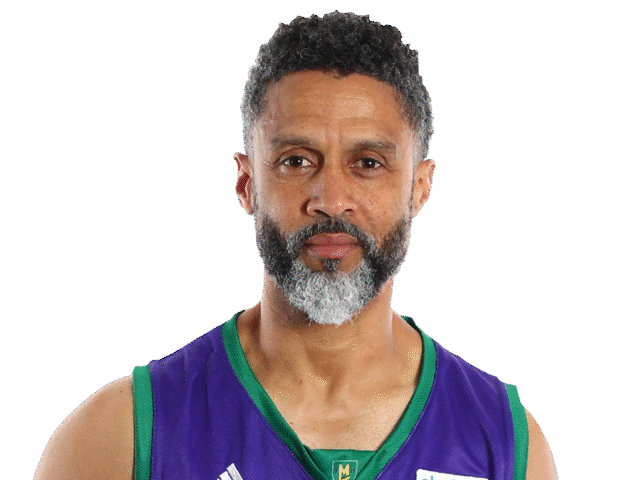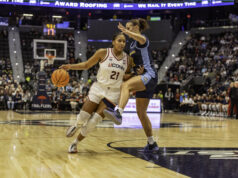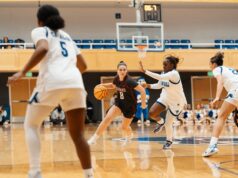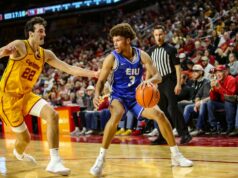SECTION: CULTURE + SPORTS | FEATURE
Blackballed & Forgotten
How Chris Jackson and Craig Hodges Were Silenced by the NBA—And Why Black Media Must Keep Telling Their Stories
In the glamorous arena of professional sports, where endorsement deals, highlight reels, and buzzer-beaters take center stage, uncomfortable truths often get buried. Among those are the stories of Mahmoud Abdul-Rauf (formerly Chris Jackson) and Craig Hodges—two Black athletes whose NBA careers were cut short not by injury or decline, but by political conviction and spiritual integrity.
Their erasure from mainstream sports memory isn’t accidental. It’s systemic. And their stories remind us of the ongoing responsibility of Black media to amplify voices the sports world tries to silence.
The Unspoken Legacy of Mahmoud Abdul-Rauf
Long before Colin Kaepernick took a knee, Chris Jackson made a stand.
A point guard with a lightning-quick release and elite scoring ability, Chris Jackson was once described as unguardable. Diagnosed with Tourette’s Syndrome, he defied odds to become a collegiate phenom and NBA standout. But his story took a sharp turn in 1996 when he refused to stand for the national anthem, citing his Islamic faith and opposition to the flag as a symbol of oppression.
“My duty is to truth, to justice,” Abdul-Rauf said at the time. “The flag stands for tyranny and oppression.”
The NBA suspended him. Sponsors vanished. By 1998, Abdul-Rauf was gone from the league—still in his prime. His quiet protest predated Kaepernick’s by two decades, yet he rarely earns a mention in conversations about athlete activism.
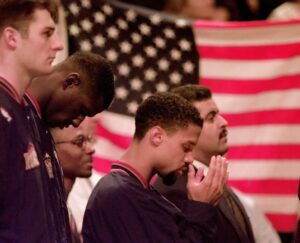
Craig Hodges: From Champion to Castaway
Hodges, a deadly three-point shooter and two-time NBA champion with the Chicago Bulls, saw his career end just as suddenly—and just as unjustly. In 1991, after the Bulls’ White House visit, he delivered a letter to President George H.W. Bush urging attention to issues plaguing Black communities.
Despite leading the league in three-point shooting and winning the All-Star Three-Point Contest three times, Hodges never played another NBA game. He was 32.
“I wasn’t done playing,” Hodges later reflected. “I was done because I spoke up.”
The Myth of Sports as a Safe Space
Today’s NBA markets itself as progressive—a place where athletes can express themselves and fight for causes. But the stories of Jackson and Hodges suggest otherwise. Activism, it seems, is only welcome when it’s commercially palatable and fits league-approved narratives.
These men were not just sidelined; they were systemically silenced. And while their stories are finally being rediscovered by a younger generation, much of the media that covered their erasure looked the other way.
Why Black Publications Matter
Mainstream sports media often chases headlines, not hard truths. That’s why Black-owned and Black-led publications have always played a critical role in preserving the full scope of Black athletic experience—not just the triumphs, but also the injustices.
“When Black athletes challenge power, it’s often Black media that defends their humanity.”
Publications like Ebony, The Root, Andscape, Four Point Zero Sports Media, BlackSportz, and Blavity have the cultural credibility and historical understanding to unpack these layered stories—stories that need consistent coverage, not seasonal spotlighting.
A Legacy Worth Reclaiming
Today, the NBA is filled with socially conscious stars—from LeBron James to Jaylen Brown—who understand their platforms. But they stand on the shoulders of men like Abdul-Rauf and Hodges, who risked their careers for truth.
Their stories should be taught, printed, shared, and archived—not buried. Black media must continue to amplify these voices, not only to preserve history but to influence a more equitable future.
CONCLUSION
The fight for fairness in sports is ongoing. When athletes and Black media face backlash for telling hard truths—and when the broader media chooses silence over context—it’s clear the game isn’t equal yet. Real change begins with telling the stories others overlook.
Because a sport can’t claim justice until every voice has space to be heard.
SIDEBAR:
REMEMBER THEIR NAMES
- Mahmoud Abdul-Rauf (Chris Jackson): NBA career 1990–1998
- Craig Hodges: NBA career 1982–1992
Both were effectively blackballed from the league after political or spiritual acts of protest.



